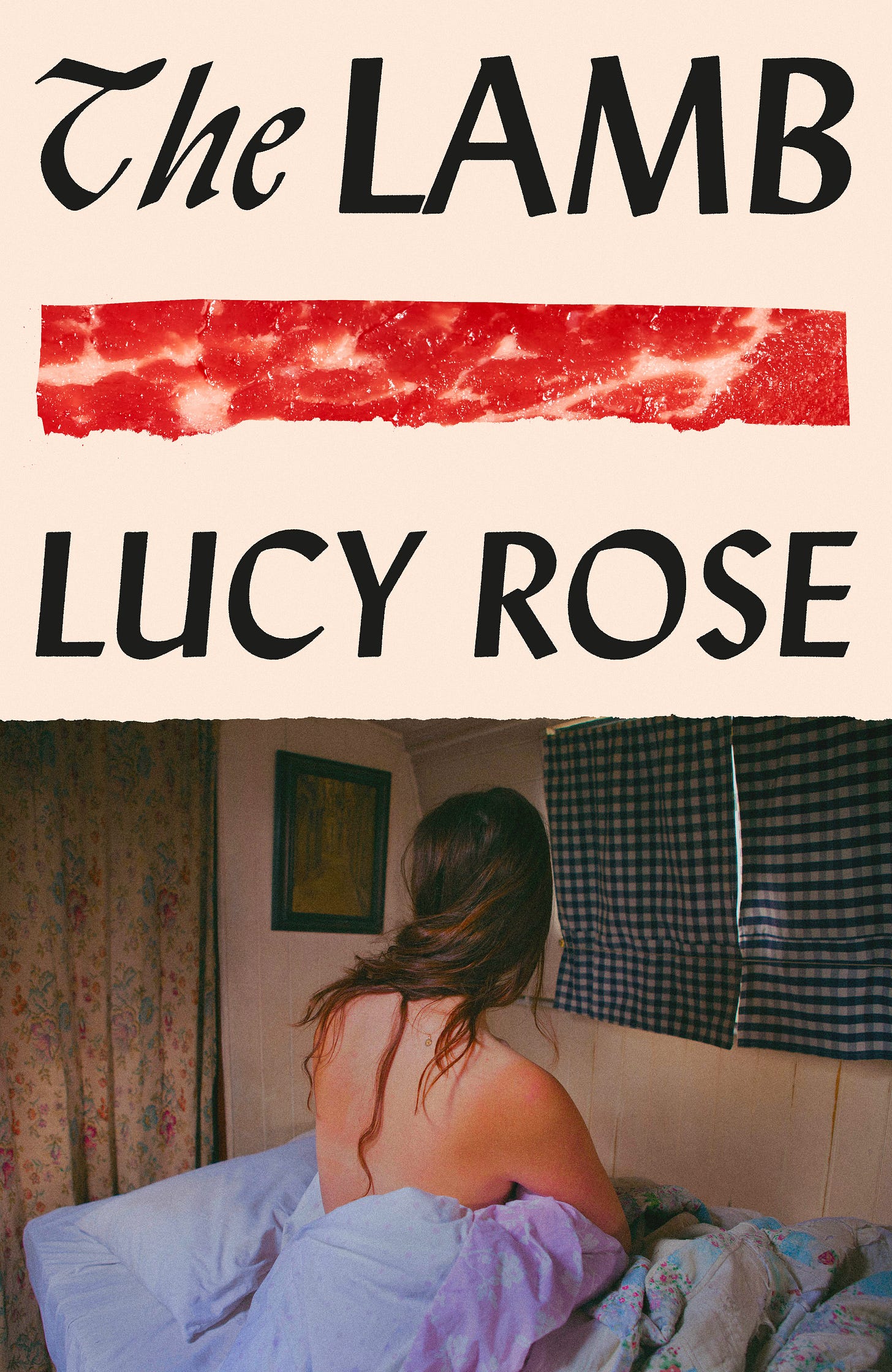Set deep in the Cumbrian countryside, Lucy Rose’s remarkable, addictive tale of a cannibalistic mother and daughter reads like a sinister fairy story, a bloody folk horror exploring motherhood and insatiable desire. We raced through The Lamb to its startling conclusion and knew it had to be added to the Book Cult. We caught up with Lucy for some questions below, and have ensured we are well stocked with copies in the Book Cult shop.
The landscape is vividly drawn in the novel. What is your relationship with Cumbria and why did you choose it as the setting for The Lamb?
Cumbria has a fascinating history. I grew up very rural, close to the Scottish border and felt a very strong connection with the natural world. My hobbies included collecting different kinds of moss and playing with the brook lamprey eels in the beck. That was my comfort space. But as I grew up, I learned about its incredibly fraught history. Being right on the border, it was a space of frequent conflict between the Anglos and the Celts – and also the Romans and the Norse when they decided to settle. A lot of blood was spilled. And the settlers that came to Cumbria and colonised it over the years (whether that was Anglos, Celts, Romans or Norse), left their little mark upon the culture, language and dialect. I think that those little marks are still felt in their small way – even thousands of years later. I find it fascinating to try to imagine what the lost languages, dialects and songs sounded like.
There is a folkloric, even fairy tale, quality to the story, with potions and pies abundant. Was this something you consciously emphasised? Are there particular traditional tales that inspire you?
I just love folktales, and after writing The Lamb, I now understand very consciously why I love them so much. Humans have been around for about 200,000 years, and there are so many things to hate about us as a species. We’re selfish, we over-consume, we are easily led to tribalism, and we’re moving at an alarmingly frightening rate towards a climate apocalypse (by choice) – we’re so strange and dangerous BUT folktales are a reminder of our goodness. Since the beginning, we’ve told stories. Oral storytelling was our way of communicating – and all those stories issued some kind of warning or caution because, despite all those terrible qualities we possess, we want our loved ones to be safe. And to me, folktales surviving through all that time and that evolution feels like those first humans reaching back to tell us: Hey you, stay safe out there. And that’s beautiful. That’s the humanity I see in my friends whenever they tell me to text them when I’m home or when I see someone helping a stranger.
Margot is a wonderful character. Did you always intend to tell the story from her perspective?
It’s strange to say this, but it was always Margot’s story. I felt it was her story so strongly that it never occurred to me that it could be someone else’s story to tell (whether that would be Mama or Eden – or even a more objective third-person narrative instead). It had to be Margot, because she’s at that really interesting age where people are building their own relationship to morality and, for the first time, experiencing new ideas and independent thought. It’s a rebellious age, filled with conflict. And as a writer, there’s something so delicious about that conflict.
In the novel, bloody horror is juxtaposed with moments of tenderness and a reverence for the natural world. How was it striking the balance between the different moods in the book?
Having two strong juxtaposing spaces of blood and pain, and also of tenderness was crucial to show the complexity of the abuse that Margot faces. There’s such a misunderstanding that abusive relationships are 100% bad – and it’s precisely that tenderness which makes those relationships so difficult to experience and escape. In this case, with The Lamb, the story unravelled itself – which is unusual, but it was that balance between those two very different spaces and moods that was one of the biggest challenges to overcome, because it had to feel real and complex.






Just finished this book today! Wow! What an incredible book. I loved how the female characters are described, you can tell the female gaze there, when describing Eden as an ancient beauty, really got me.
The abuse in this book is absolutely disheartening but felt as real as the tale of the Woman Rabbit felt for Margot.
I enjoyed the descriptions of the forest and the hexes, including the cooking process let me tell ya. Highly recommend this book xx
oooh i wanna read this book